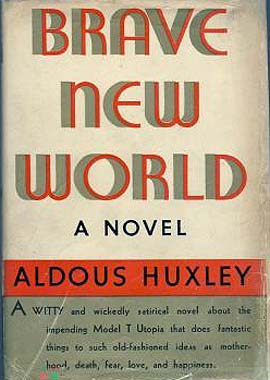“What Orwell feared were those who would ban books. What Huxley feared was that there would be no reason to ban a book, for there would be no one who wanted to read one. Orwell feared those who would deprive us of information. Huxley feared those who would give us so much that we would be reduced to passivity and egoism. Orwell feared that the truth would be concealed from us. Huxley feared the truth would be drowned in a sea of irrelevance. Orwell feared we would become a captive culture. Huxley feared we would become a trivial culture.”
– Neal Postman, “Amusing Ourselves to Death” 1984.
By Andrew Postman
The Guardian (2/2/17)
Over the last year, as the presidential campaign grew increasingly bizarre and Donald Trump took us places we had never been before, I saw a spike in media references to Amusing Ourselves to Death, a book written by my late father, Neil Postman, which anticipated back in 1985 so much about what has become of our current public discourse.
At Forbes, one contributor wrote that the book “may help explain the otherwise inexplicable”. CNN noted that Trump’s allegedly shocking “ascent would not have surprised Postman”. At ChristianPost.com, Richard D Land reflected on reading the book three decades ago and feeling “dumbfounded … by Postman’s prophetic insights into what was then America’s future and is now too often a painful description of America’s present”. Last month, a headline at Paste Magazine asked: “Did Neil Postman Predict the Rise of Trump and Fake News?”
Colleagues and former students of my father, who taught at New York University for more than 40 years and who died in 2003, would now and then email or Facebook message me, after the latest Trumpian theatrics, wondering, “What would Neil think?” or noting glumly, “Your dad nailed it.”

The central argument of Amusing Ourselves is simple: there were two landmark dystopian novels written by brilliant British cultural critics – Brave New World by Aldous Huxley and Nineteen Eighty-Four by George Orwell – and we Americans had mistakenly feared and obsessed over the vision portrayed in the latter book (an information-censoring, movement-restricting, individuality-emaciating state) rather than the former (a technology-sedating, consumption-engorging, instant-gratifying bubble).
The misplaced focus on Orwell was understandable: after all, for decades the cold war had made communism – as embodied by Nineteen Eighty-Four’s Big Brother – the prime existential threat to America and to the greatest of American virtues, freedom. And, to put a bow on it, the actual year, 1984, was fast approaching when my father was writing his book, so we had Orwell’s powerful vision on the brain.
Whoops. Within a half-decade, the Berlin Wall came down. Two years later, the Soviet Union collapsed.
“We were keeping our eye on 1984,” my father wrote. “When the year came and the prophecy didn’t, thoughtful Americans sang softly in praise of themselves. The roots of liberal democracy had held. Wherever else the terror had happened, we, at least, had not been visited by Orwellian nightmares.”
Unfortunately, there remained a vision we Americans did need to guard against …

